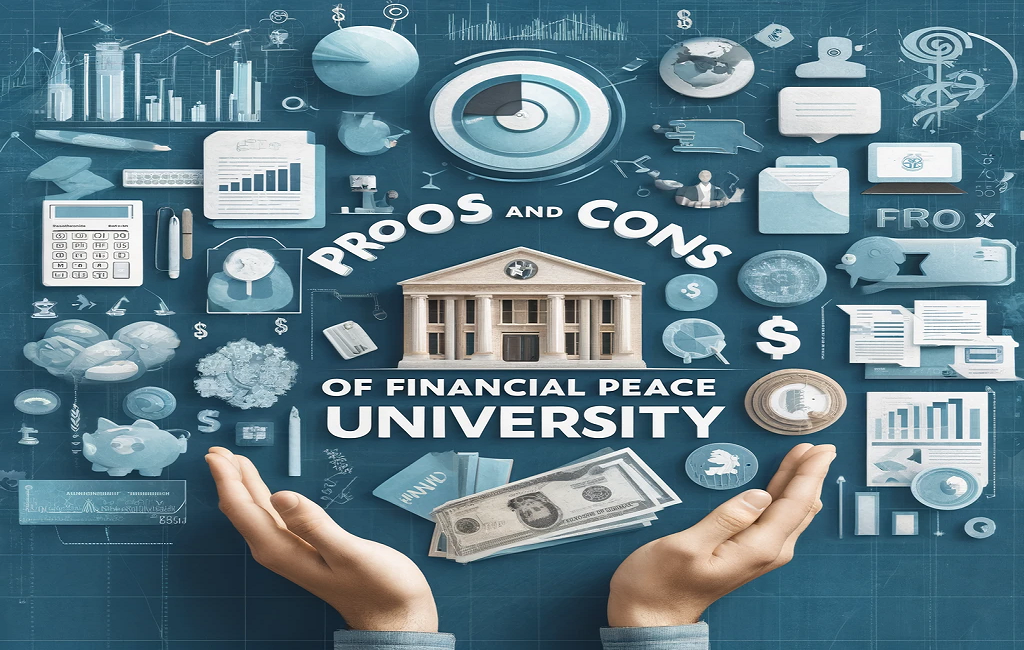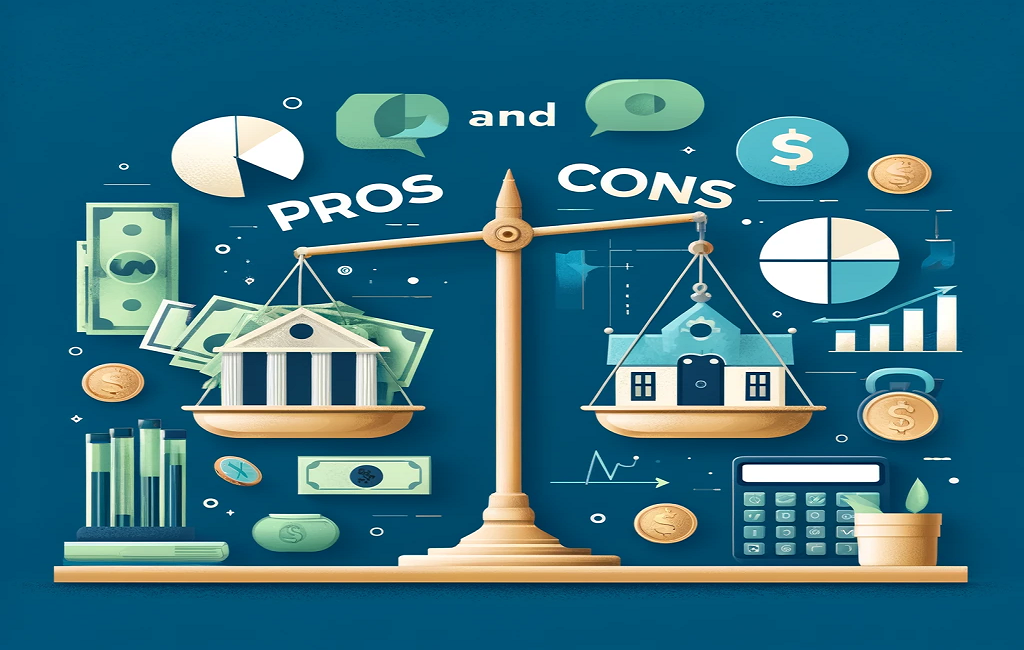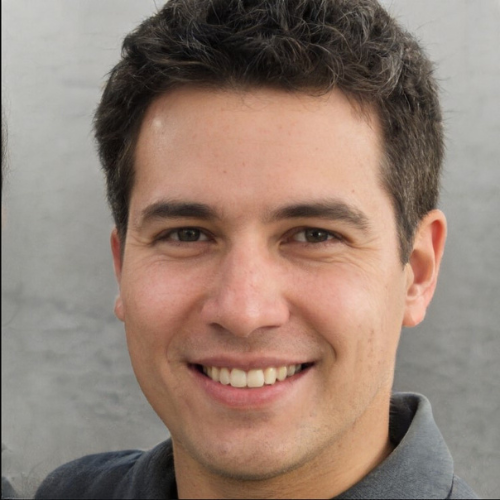
Financial Peace University (FPU), created by Dave Ramsey, is a popular financial education program designed to help individuals and families achieve economic stability and peace. With a structured curriculum, practical tools, and community support, FPU has garnered both praise and criticism. This article will explore the pros and cons of FPU, providing a balanced view to help you decide if it’s the right financial program for you.
Achieving financial peace is a goal that many aspire to, but few accomplish without guidance. Financial Peace University aims to bridge this gap by offering a comprehensive roadmap to financial health. The program delves into various aspects of personal finance, from budgeting and debt reduction to investing and wealth building. By understanding both the advantages and potential drawbacks of FPU, you can make an informed decision about whether this program aligns with your financial goals and lifestyle.
Whether you’re struggling with debt, looking to save for the future, or simply wanting to gain better control over your finances, Financial Peace University promises to equip you with the knowledge and tools needed to make lasting changes. However, like any financial education program, it’s essential to weigh its benefits against its costs and commitments to determine its true value.
In the following sections, we will examine Financial Peace University’s structure and components, discuss its key benefits and drawbacks, and offer personal insights to provide a well-rounded perspective on this widely regarded program.

Table of Contents
What is Financial Peace University?
Financial Peace University (FPU) is a comprehensive financial education program developed by renowned financial expert Dave Ramsey. The program is designed to help individuals and families achieve economic stability and independence through a structured and systematic approach to personal finance. Since its inception, FPU has helped millions of people take control of their financial lives by providing them with the knowledge and tools needed to manage their money effectively.
Program Structure
Financial Peace University is organized into a nine-lesson course, each focusing on a different aspect of personal finance. These lessons are typically spread over nine weeks, allowing participants to absorb and implement the teachings gradually
. The program is available both in person and
online, making it accessible to a wide range of participants. The lessons are delivered through video presentations by Dave Ramsey and his team, supplemented by group discussions and workbook activities. This format encourages participant interaction and accountability, fostering a supportive learning environment.
Core Lessons
The core curriculum of Financial Peace University covers the following topics:
- Baby Steps: Introduction to the seven-step plan
That guides participants toward financial health, including saving for emergencies, paying off debt, and building wealth.
- Budgeting: Detailed instructions on creating and sticking to a monthly budget. This lesson emphasizes the importance of giving every dollar a job and tracking expenses meticulously.
- Debt Reduction: Techniques for paying off debt quickly use debt snowball approaches. Participants learn how to prioritize debt payments and stay motivated throughout the process.
- Emergency Fund: Guidance on saving for unexpected expenses and establishing a robust emergency fund. This lesson underscores the importance of financial security and readiness.
- Investing and Retirement Planning: Basics of investing and retirement planning, including information on different types of retirement accounts, investment strategies, and the power of compound interest.
- Insurance: Understanding various types of insurance and how to choose the right policies to protect against financial risk. This includes health, life, auto, homeowners, and other essential insurance.
- Building Wealth and Giving: Strategies for long-term wealth building and the importance of generosity. Participants learn to invest wisely, create passive income streams, and incorporate charitable giving into their financial plans.
- Real Estate and Mortgages: Tips for buying and selling real estate, understanding mortgages, and making informed decisions about homeownership.
- College Planning and Financial Literacy for Children: Advice on saving for college, minimizing student debt, and teaching children about money management from a young age.
Tools and Resources
Financial Peace University provides various practical tools and resources to support participants’ financial journey. These include:
- EveryDollar Budgeting App: A user-friendly app designed to help participants create and maintain their budgets, track spending, and stay on top of their financial goals.
- Workbooks and Guides: Comprehensive workbooks that accompany each lesson, providing exercises, activities, and additional reading to reinforce learning.
- Online Community: Access to an online community where participants can share their experiences, seek advice, and offer support to one another.
Goals and Outcomes
The primary goal of Financial Peace University is to transform participants’ financial behaviors and help them achieve financial independence. By following the program, participants are expected to:
- Gain a clear understanding of their financial situation.
- Develop and adhere to a monthly budget.
- Pay off debt systematically.
- Build an emergency fund to cover unexpected expenses.
- Start investing for the future and retirement.
- Make informed decisions about insurance and real estate.
- Teach their children about financial responsibility.
Financial Peace University aims to provide a holistic approach to financial education, equipping participants with the knowledge and tools necessary to achieve long-term financial peace.

Pros of Financial Peace University
Financial Peace University (FPU) has garnered a strong reputation for its effectiveness in helping individuals and families achieve financial stability. Here are some of the key benefits of enrolling in FPU:
Proven Track Record
One of Financial Peace University’s most significant advantages is its proven track record. Since its inception, FPU has helped millions of people take control of their finances. The program is filled with success stories from individuals who have paid off substantial debt, built robust emergency funds, and achieved financial independence. These testimonials and case studies highlight the program’s effectiveness and provide motivation for new participants.
Comprehensive Curriculum
FPU offers a thorough curriculum that covers all essential aspects of personal finance. From budgeting and debt reduction to investing and insurance, the program provides a well-rounded education on financial management. Each lesson builds on the previous one, ensuring participants develop a cohesive understanding of economic principles.
This step-by-step approach helps participants implement the concepts in a practical and manageable way, making it easier to achieve financial goals.
Community Support
A key component of Financial Peace University is the community support it offers. Participants are encouraged to join local or online groups to share their experiences, ask questions, and support each other. This sense of community can be incredibly motivating and helps to keep participants accountable. Knowing that others are facing similar challenges and working towards the same goals can significantly boost morale and determination.
Practical Tools and Resources
Financial Peace University provides various practical tools and resources to help participants manage their finances effectively. These include:
- EveryDollar Budgeting App: This user-friendly app allows participants to create and maintain budgets, track spending, and monitor financial goals. It is designed to simplify and make the budgeting process more accessible.
- Workbooks and Guides: Each lesson has comprehensive workbooks that provide exercises, activities, and additional reading to reinforce learning. These materials help participants apply the lessons’ concepts to their financial situations.
- Financial Calculators: Various calculators are available to help participants with debt reduction, retirement planning, and other financial decisions. These tools make it easier to visualize and plan for long-term financial goals.
Positive Behavioral Change
One of Financial Peace University’s core goals is to instill positive financial habits and behaviors. The program emphasizes the importance of disciplined spending, saving, and investing. By following the principles taught in FPU, participants can develop lasting behavioral changes that lead to long-term financial stability. The structured approach helps individuals break free from bad financial habits and adopt a more responsible and proactive attitude toward money management.
Accountability and Motivation
The Financial Peace University group format provides a built-in system of accountability and motivation. Regular meetings and discussions with other participants help keep individuals on track and motivated to achieve their financial goals. The encouragement and support from peers can be a powerful driving force in maintaining commitment to the program and making consistent progress.
Financial Peace and Emotional Well-being
Achieving financial stability can significantly improve overall emotional well-being. By reducing financial stress and gaining control over their finances, participants often experience increased peace of mind and a greater sense of security. This emotional benefit is an essential aspect of Financial Peace University, as it contributes to participants’ overall quality of life and personal satisfaction.
Conclusion
Financial Peace University offers a comprehensive and structured approach to personal finance, with numerous benefits for those who commit to the program. Its proven track record, comprehensive curriculum, and strong community support make it a valuable resource for anyone looking to achieve financial stability and peace. FPU equips participants with the knowledge and skills needed to control their financial future by providing practical tools and fostering positive behavioral change.
Cons of Financial Peace University
While Financial Peace University (FPU) has many benefits, it has drawbacks. Here are some of the key disadvantages to consider:
High Initial Cost
One of Financial Peace University’s primary drawbacks is its high initial cost. The program typically costs between $129 and $149 for a one-year membership, which includes access to all lessons and resources. This upfront cost can be a significant barrier for individuals and families already struggling with their finances. Although the investment can pay off in the long run, the initial expense may deter some people from enrolling.
Time Commitment
Financial Peace University requires a substantial time commitment. The program consists of nine lessons, each designed to be completed over nine weeks. Each session can take several hours, including video presentations, group discussions, and workbook activities. Finding the time to dedicate to the program can be challenging for busy individuals. This time commitment may be challenging for those with demanding jobs, family responsibilities, or other obligations.
One-Size-Fits-All Approach
FPU follows a one-size-fits-all approach to financial management, which may not be suitable for everyone. While the principles taught in the program are sound and practical for many, they may not address the unique financial situations of all participants. For example, the debt snowball method, which prioritizes paying off smaller debts first, may not be the most efficient strategy for individuals with high-interest debt. Participants may need to modify the advice to better fit their circumstances, which can be a drawback for those seeking a tailored approach.
Potential Emotional Stress
Addressing financial issues can be emotionally stressful, and Financial Peace University is no exception. The program requires participants to confront their financial mistakes and make significant lifestyle changes. This process can be emotionally taxing, especially for those not prepared for the necessary level of commitment. The pressure to adhere to the program’s program guidelines can also lead to frustration and anxiety, mainly if progress is slow or setbacks occur.
Membership Fees
In addition to the initial cost, there are ongoing membership fees for access to some of the resources and community support offered by Financial Peace University. While the one-year membership includes many of the program’s features, continued access to specific tools and support networks may require additional fees. These ongoing costs can add up over time and may become a financial burden for some participants, especially if they are not seeing immediate results.
Limited Flexibility
Financial Peace University is structured and rigid in its approach, which can be a limitation for some participants. The program follows a specific sequence of steps and principles, leaving little room for flexibility or customization. This rigidity can disadvantage those who prefer a more flexible approach to financial management or have unique financial goals that do not align with the program’s guidelines.
Heavy Reliance on Biblical Teachings
While many participants appreciate the program’s incorporation of biblical principles, this aspect may not resonate with everyone. Financial Peace University is heavily influenced by Dave RRamsey’s Christian beliefs, and the lessons often reference biblical teachings. This aspect of the program may be off-putting for individuals who do not share these religious views or prefer a secular approach to financial education.
Conclusion
While Financial Peace University offers a comprehensive and practical approach to financial management, it is essential to consider its potential drawbacks. The high initial cost, time commitment, and one-size-fits-all approach may not suit everyone. Additionally, the potential for emotional stress and ongoing membership fees can be significant concerns. By weighing these cons against the program’s benefits, you can make an informed decision about whether Financial Peace University is the right choice for your financial journey.
Personal Opinion
Having explored both the pros and cons of Financial Peace University, it’s important to provide a nuanced perspective that takes into account personal experiences and observations. Financial Peace University is undoubtedly a well-structured and comprehensive program that has helped many individuals and families achieve financial stability. However, it’s not without its limitations, and its suitability can vary based on individual circumstances.
The Value of Structured Financial Education
One of the standout features of Financial Peace University is its structured approach to financial education. For many people, the program’s step-by-step guidance is invaluable. The curriculum covers a broad range of topics, from budgeting and debt reduction to investing and insurance, making it a one-stop solution for personal finance education. The clear, actionable steps help demystify complex financial concepts and provide an easy-to-follow roadmap.
Community and Accountability
The sense of community and accountability fostered by FPU is another significant benefit. Financial challenges can often feel isolating, and the support of a like-minded group can be incredibly motivating. Sharing experiences, successes, and setbacks with others can provide the encouragement needed to stay on track. The accountability aspect, where participants check in with each other, can also drive commitment and consistency, which are crucial for financial success.
High Costs and Financial Burden
However, the program’s high cost is a notable drawback. The initial investment can be a significant hurdle for individuals already struggling financially. While the program’s long-term benefits may outweigh the costs, this upfront financial burden can be discouraging. Additionally, ongoing membership fees for continued access to specific resources can add up, posing a challenge for those on a tight budget.
One-Size-Fits-All Approach and Emotional Stress
The one-size-fits-all approach can also be limiting. Financial situations are highly individualized, and what works for one person may not work for another. The program’s rigid structure may not account for unique financial circumstances or alternative strategies that could be more effective in some instances. Furthermore, the emotional stress of confronting financial mistakes and making significant lifestyle changes should not be underestimated. The program’s intensity may not suit everyone, particularly those unprepared for such a rigorous approach.
Incorporation of Biblical Principles
Another aspect that can be polarizing is the heavy reliance on biblical teachings. While many participants appreciate the moral and ethical framework provided by these teachings, others may find them less relevant or even off-putting. Financial education should ideally be inclusive and adaptable to various worldviews and beliefs.
Proven Track Record and Behavioral Change
On the positive side, the program’s proven track record and emphasis on behavioral change are significant strengths. The success stories of individuals who have transformed their financial lives through FPU are inspiring. The program’s focus on changing financial behaviors rather than just imparting knowledge is crucial for long-term success. Developing disciplined spending, saving, and investing habits can lead to sustained economic stability and peace.
Final Thoughts
In conclusion, Financial Peace University offers a robust framework for achieving financial peace, but it is essential to consider its benefits and limitations. For those willing to invest the time and money and who resonate with its approach, FPU can be a transformative experience. However, it may not be the best fit for everyone, particularly those seeking a more flexible, individualized approach to financial management or those put off by the cost and religious undertones. As with any financial education program, evaluating how well it aligns with your needs, goals, and values is critical.
Conclusion
Financial Peace University (FPU) is a comprehensive financial education program that has helped millions of individuals and families achieve economic stability. Its structured curriculum, practical tools, and community support provide a solid foundation for managing personal finances. The program’s emphasis on behavioral change and accountability can lead to lasting financial habits and peace of mind.
However, FPU is not without its drawbacks. The high initial cost and ongoing membership fees can be significant barriers for those already facing financial challenges. The program’s one-size-fits-all approach may not suit everyone’s unique financial situation, and the potential for emotional stress should not be overlooked. Additionally, the reliance on biblical teachings may not resonate with all participants.
In evaluating whether Financial Peace University is the right fit for you, it’s important to weigh these pros and cons against your own financial goals, circumstances, and values. The program’s proven track record and the success stories of many who have benefited from it underscore its potential value. However, the financial and time commitments required, along with the program’s specific approach, mean that it may not be suitable for everyone.
Ultimately, achieving financial peace is a personal journey that requires dedication, discipline, and the right resources. Financial Peace University can be a powerful tool in this journey for those who find its methods and principles align with their needs. By carefully considering the advantages and potential drawbacks, you can decide whether to embark on this program to transform your financial future.
FAQ
Who should attend Financial Peace University? Financial Peace University is ideal for individuals and families who are struggling with debt, want to improve their financial literacy, and are looking for a structured program to guide them toward financial stability. It’s also beneficial for those who seek accountability and support in their financial journey.
How much does Dave Ramsey Financial Peace University cost? A one-year membership typically costs $129 to $149. This fee includes access to the program’s lessons, workbooks, and tools. There may be additional costs for ongoing access to some resources and community support.
How long have I had access to Financial Peace University? Participants generally have access to Financial Peace University materials for one year from the date of purchase. Some packages may offer extended access periods, and there are options to renew membership for continued access to resources and support.
How many sessions is Financial Peace University? Financial Peace University consists of nine sessions designed to be completed over nine weeks. Each session covers a different aspect of personal finance, from budgeting and debt reduction to investing and insurance.
Does EveryDollar come with Financial Peace University? The EveryDollar budgeting tool is included with the Financial Peace University membership. This tool helps participants create and maintain budgets, track spending, and monitor financial goals.
Can Financial Peace University help me if I am already financially stable? While Financial Peace University is particularly beneficial for those struggling with debt and financial instability, it can also provide valuable insights and strategies for already economically stable individuals. The program covers advanced topics such as investing, wealth building, and charitable giving, which can help enhance financial literacy and management skills.
Is Financial Peace University suitable for non-religious individuals? Financial Peace University incorporates biblical principles into its teachings, which may not resonate with all participants. However, many of the financial principles taught in the program are universal and can be applied regardless of religious beliefs. Non-religious individuals can still benefit from the program’s practical financial advice and tools.
What happens if I miss a session at Financial Peace University? Most local groups and online platforms offer ways to catch up on missed content. You can review the lesson materials, watch recorded video presentations, and complete workbook activities at your own pace. It’s important to stay engaged and complete all sessions to get the full benefit of the program.
Are there any alternatives to Financial Peace University? There are several alternatives to Financial Peace University, including other financial education programs, books, and online courses. Some popular options include “The Total Money Makeover” by Dave Ramsey, “Our Money or Your Life” by Vicki Robin and Joe Dominguez, and online Coursera and Khan Academy courses. Researching and choosing a program that best fits your needs and financial goals is essential.


Sweet site, super pattern, really clean and utilize friendly.